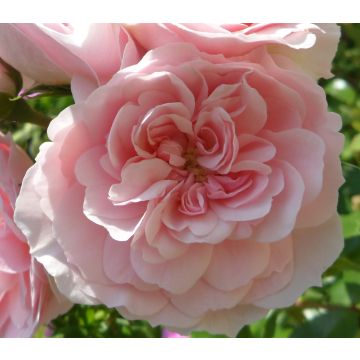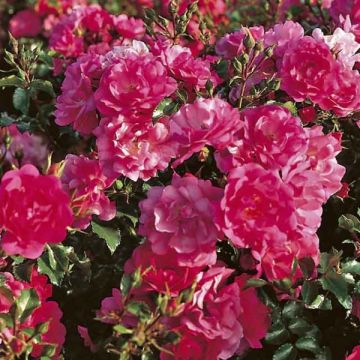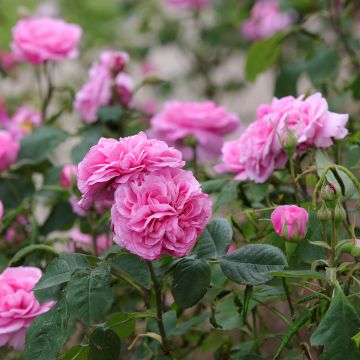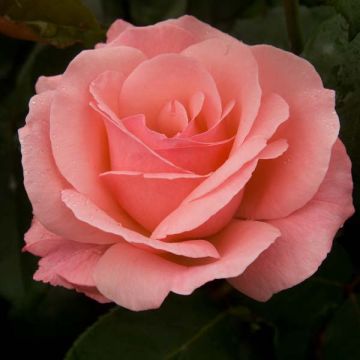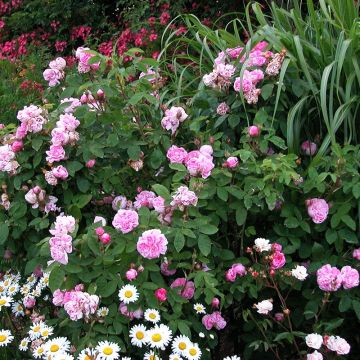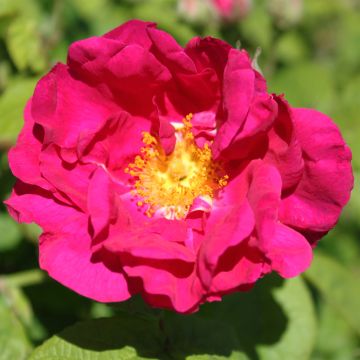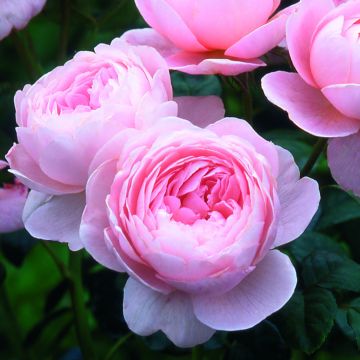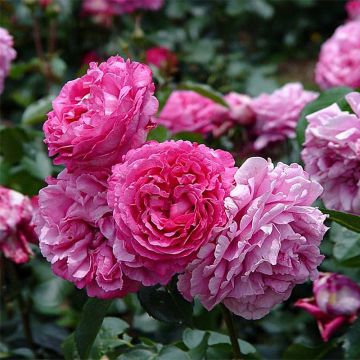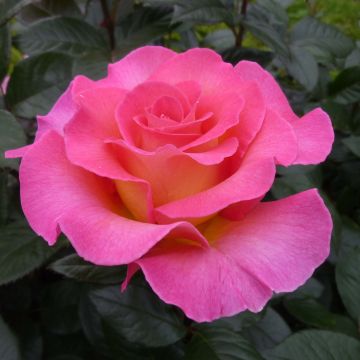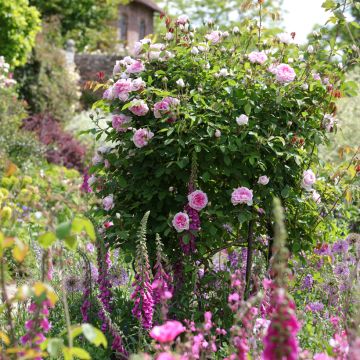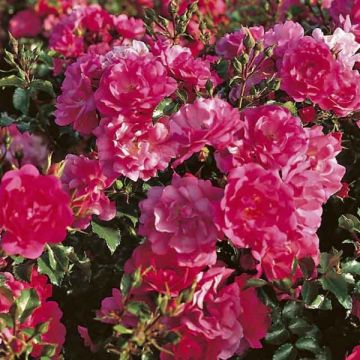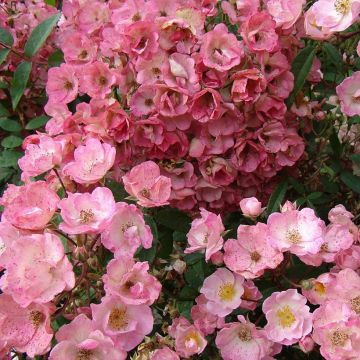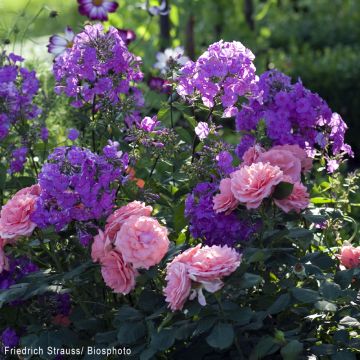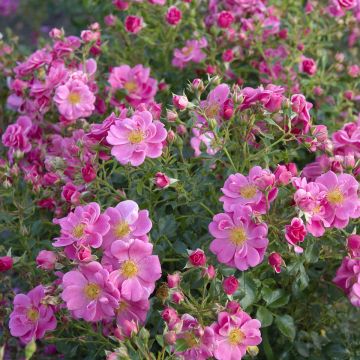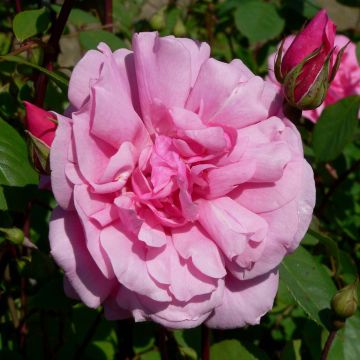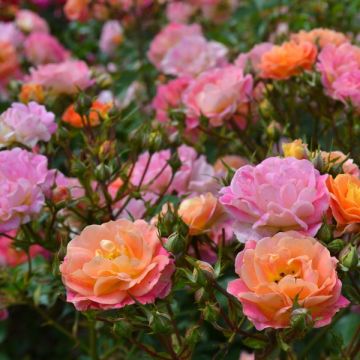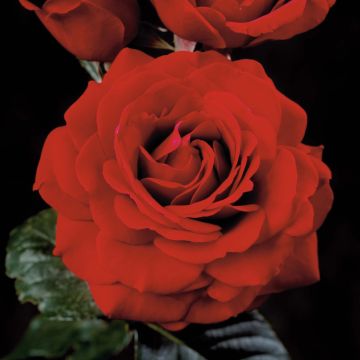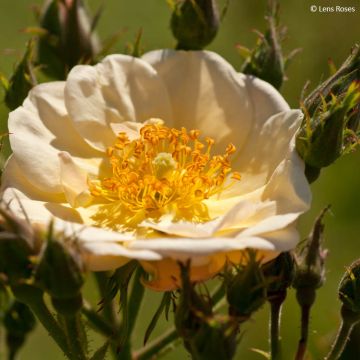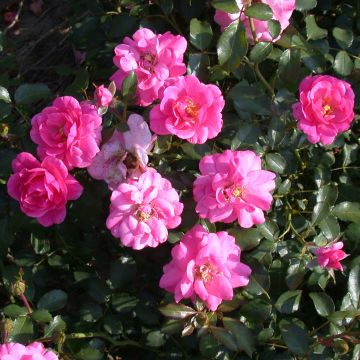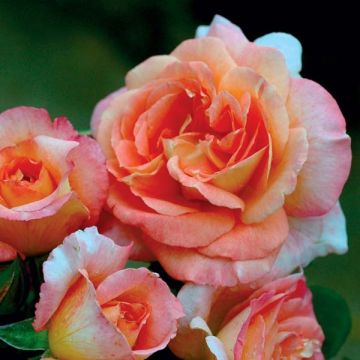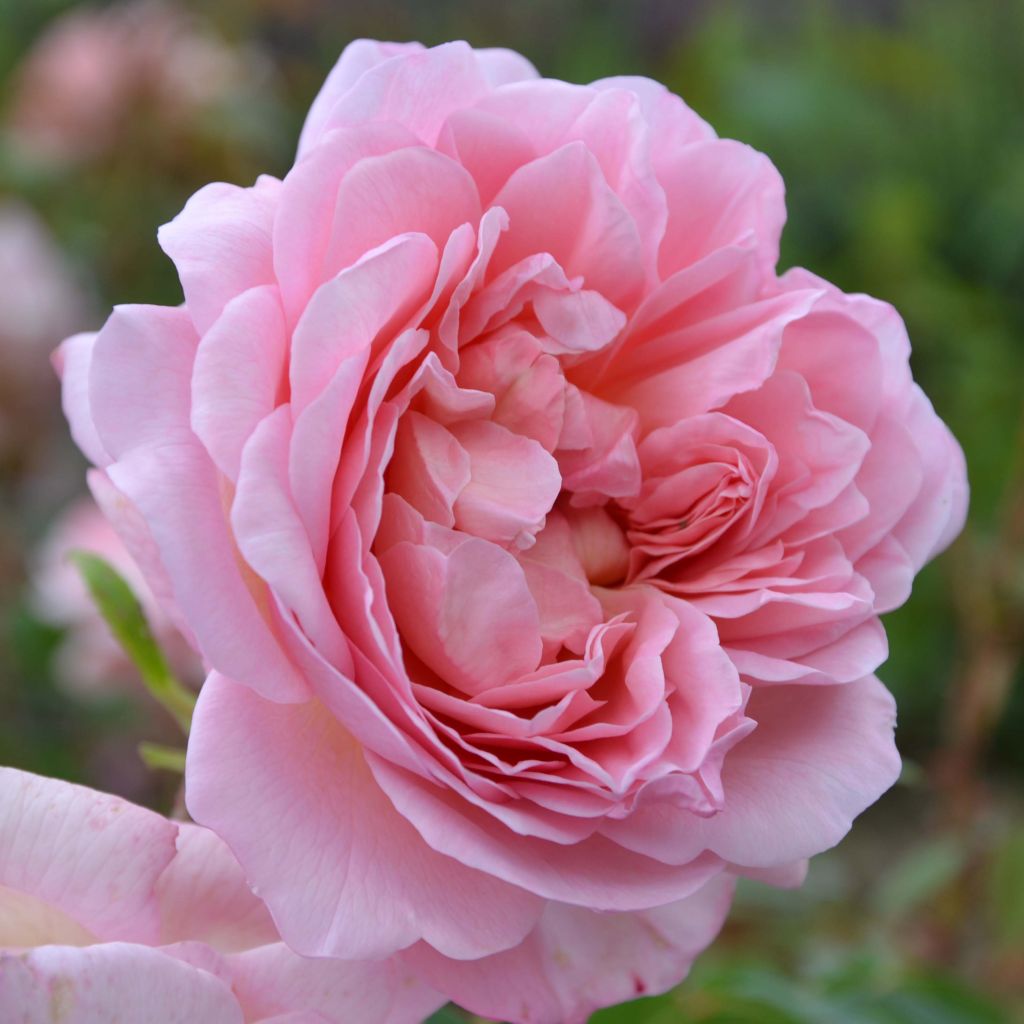

Rosa Generosa 'Sonia Rykiel' - Shrub Rose
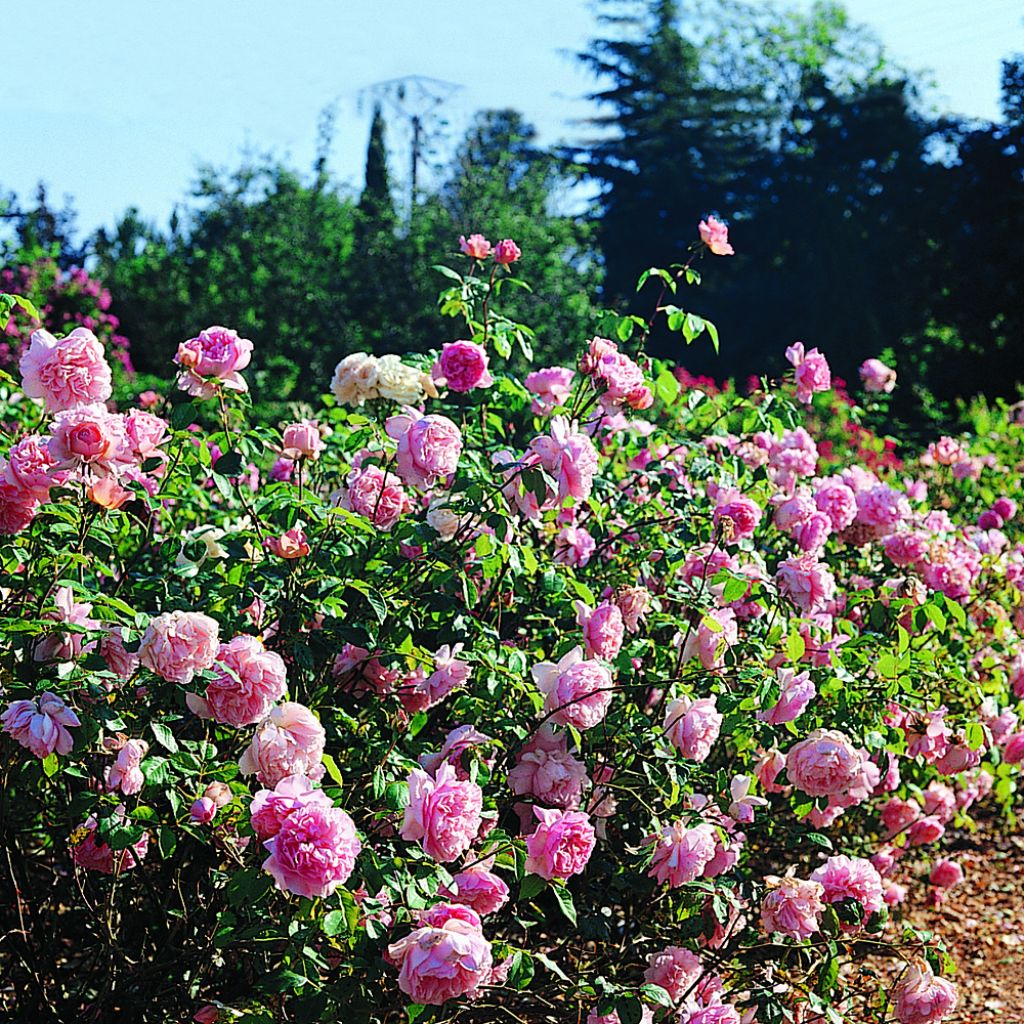

Rosa Generosa 'Sonia Rykiel' - Shrub Rose
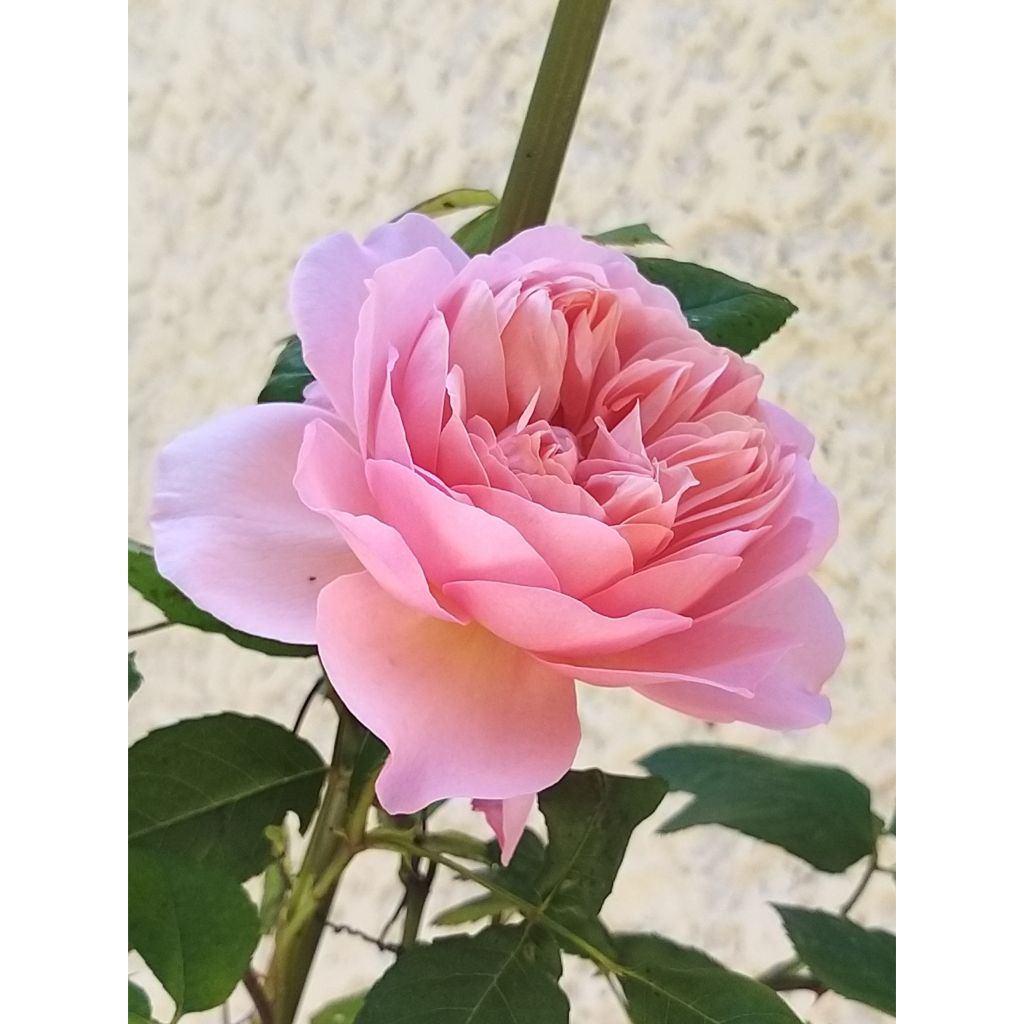

Rosa Generosa 'Sonia Rykiel' - Shrub Rose
Rosa Generosa 'Sonia Rykiel' - Shrub Rose
Rosa Generosa® Sonia Rykiel® Masdogui
Masdogui
Why not try an alternative variety in stock?
View all →This plant carries a 24 months recovery warranty
More information
We guarantee the quality of our plants for a full growing cycle, and will replace at our expense any plant that fails to recover under normal climatic and planting conditions.
From €5.90 for pickup delivery and €6.90 for home delivery
Express home delivery from €8.90.
From €5.90 for pickup delivery and €6.90 for home delivery
Express home delivery from €8.90.
Delivery to Corse prohibited: UE law prohibits the import of this plant from mainland France to Corse as part of the fight against Xylella fastidiosa. Please accept our sincere apologies.
More information

Does this plant fit my garden?
Set up your Plantfit profile →
Description
The Rosier Generosa - 'Sonia Rykiel' forms a large, flexible, and floriferous bush, which undeniably possesses the class and excellent style of "haute couture" creations. From spring to frost, it produces myriad pink buds that open into large, slightly crumpled cups with a bright, slightly amber and silky pink colour, where an intoxicating scent of tea rose with fruity notes of pear, banana, and honey lingers. Perfect for all gardens, it works well in flowerbeds, a standalone plant, or a hedge of bushes. Its flowers are stunning in bouquets.
The roses in the Generosa series are modern roses with the appearance of old-fashioned roses. They combine the charm of yesteryear's roses with modern roses' robustness and long flowering period. 'Sonia Rykiel' is a large bush rose with a free, flexible, somewhat upright habit. At maturity, it will reach a height of 1.5 meters (5 feet) with a spread of 1 meter (3 feet). Flowering begins in May and continues until the arrival of frost. The plant produces numerous triangular buds on its red and then tender green branches, which open into frilly flowers resembling a crinoline. The flowers are double, 10 cm (4in) wide, and crumpled petals tightly packed together. They start as a fresh pink and turn into a lighter pink, becoming more amber towards the edges. They have a powerful and complex fragrance. The rose breeder Guillot sums up this creation as "Such elegance, for a tribute to haute couture, was the least we could do! (...) Exquisite crinoline of vaporous lace, these scented roses exude an intoxicating perfume with refined fruity notes". The foliage is healthy, deciduous, and a vibrant green, requiring little maintenance. This bush is very hardy.
The 'Sonia Rykiel' rose stands out for its vigour, large, very pink roses, the fragrance of its flowers, and its longevity. If you have enough space, it should be planted in a large border or a monochrome flowerbed. Some perennial plants and grasses are ideal for enhancing its beauty and accompanying it late in the season. Pair it with Geranium psilostemon, shrubby salvias, magenta lychnis, Panic, Miscanthus 'Ghana', or Nepeta 'Walker's Low'. It will also look good as a standalone plant surrounded by grey foliage. Its flowers make elegant and chic bouquets, especially with mixed double gypsophila and some bushy St. John's wort berries and symphorines.
Full name: Rosa Generosa® Sonia Rykiel® 'Masdogui' - Bred by Guillot.
Report an error about the product description
Rosa Generosa 'Sonia Rykiel' - Shrub Rose in pictures
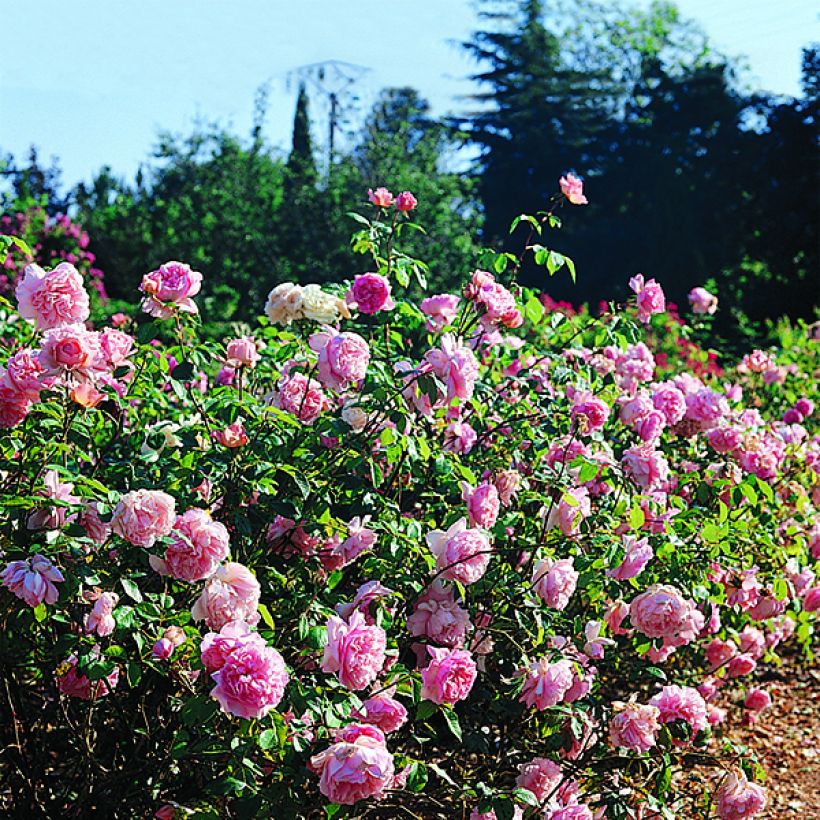

Plant habit
Flowering
Foliage
Botanical data
Rosa
Generosa®
Sonia Rykiel® Masdogui
Rosaceae
Masdogui
Cultivar or hybrid
Rosa canina Laxa (Wrapped bare root, 4L/5L pot)
Other Roses A to Z
Planting and care
Rose bushes need sunlight for 4-5 hours every day, but it's best to protect them from the strong sun and wind. They grow best in loose, permeable soil that is rich in humus. The soil should be well-cultivated and rich enough, but they can also grow in any type of soil.
If you're planting them in a pot, loosen the soil to a depth of 10 inches and add a base amendment like blood, fish and bone at the bottom of the planting hole. Position the plant and cover the top of the root ball with 1 inch of soil. Fill in the hole, press down the soil, and water generously to eliminate air pockets. Water regularly during dry weather for a few weeks to help the roots develop. Use special rose fertilisers to promote flowering.
Roses may develop unsightly spots at the end of summer, but this is a natural occurrence and doesn't harm the rose's growth.
Planting period
Intended location
Care
-
, onOrder confirmed
Reply from on Promesse de fleurs
Fragrant Roses
Haven't found what you were looking for?
Hardiness is the lowest winter temperature a plant can endure without suffering serious damage or even dying. However, hardiness is affected by location (a sheltered area, such as a patio), protection (winter cover) and soil type (hardiness is improved by well-drained soil).

Photo Sharing Terms & Conditions
In order to encourage gardeners to interact and share their experiences, Promesse de fleurs offers various media enabling content to be uploaded onto its Site - in particular via the ‘Photo sharing’ module.
The User agrees to refrain from:
- Posting any content that is illegal, prejudicial, insulting, racist, inciteful to hatred, revisionist, contrary to public decency, that infringes on privacy or on the privacy rights of third parties, in particular the publicity rights of persons and goods, intellectual property rights, or the right to privacy.
- Submitting content on behalf of a third party;
- Impersonate the identity of a third party and/or publish any personal information about a third party;
In general, the User undertakes to refrain from any unethical behaviour.
All Content (in particular text, comments, files, images, photos, videos, creative works, etc.), which may be subject to property or intellectual property rights, image or other private rights, shall remain the property of the User, subject to the limited rights granted by the terms of the licence granted by Promesse de fleurs as stated below. Users are at liberty to publish or not to publish such Content on the Site, notably via the ‘Photo Sharing’ facility, and accept that this Content shall be made public and freely accessible, notably on the Internet.
Users further acknowledge, undertake to have ,and guarantee that they hold all necessary rights and permissions to publish such material on the Site, in particular with regard to the legislation in force pertaining to any privacy, property, intellectual property, image, or contractual rights, or rights of any other nature. By publishing such Content on the Site, Users acknowledge accepting full liability as publishers of the Content within the meaning of the law, and grant Promesse de fleurs, free of charge, an inclusive, worldwide licence for the said Content for the entire duration of its publication, including all reproduction, representation, up/downloading, displaying, performing, transmission, and storage rights.
Users also grant permission for their name to be linked to the Content and accept that this link may not always be made available.
By engaging in posting material, Users consent to their Content becoming automatically accessible on the Internet, in particular on other sites and/or blogs and/or web pages of the Promesse de fleurs site, including in particular social pages and the Promesse de fleurs catalogue.
Users may secure the removal of entrusted content free of charge by issuing a simple request via our contact form.
The flowering period indicated on our website applies to countries and regions located in USDA zone 8 (France, the United Kingdom, Ireland, the Netherlands, etc.)
It will vary according to where you live:
- In zones 9 to 10 (Italy, Spain, Greece, etc.), flowering will occur about 2 to 4 weeks earlier.
- In zones 6 to 7 (Germany, Poland, Slovenia, and lower mountainous regions), flowering will be delayed by 2 to 3 weeks.
- In zone 5 (Central Europe, Scandinavia), blooming will be delayed by 3 to 5 weeks.
In temperate climates, pruning of spring-flowering shrubs (forsythia, spireas, etc.) should be done just after flowering.
Pruning of summer-flowering shrubs (Indian Lilac, Perovskia, etc.) can be done in winter or spring.
In cold regions as well as with frost-sensitive plants, avoid pruning too early when severe frosts may still occur.
The planting period indicated on our website applies to countries and regions located in USDA zone 8 (France, United Kingdom, Ireland, Netherlands).
It will vary according to where you live:
- In Mediterranean zones (Marseille, Madrid, Milan, etc.), autumn and winter are the best planting periods.
- In continental zones (Strasbourg, Munich, Vienna, etc.), delay planting by 2 to 3 weeks in spring and bring it forward by 2 to 4 weeks in autumn.
- In mountainous regions (the Alps, Pyrenees, Carpathians, etc.), it is best to plant in late spring (May-June) or late summer (August-September).
The harvesting period indicated on our website applies to countries and regions in USDA zone 8 (France, England, Ireland, the Netherlands).
In colder areas (Scandinavia, Poland, Austria...) fruit and vegetable harvests are likely to be delayed by 3-4 weeks.
In warmer areas (Italy, Spain, Greece, etc.), harvesting will probably take place earlier, depending on weather conditions.
The sowing periods indicated on our website apply to countries and regions within USDA Zone 8 (France, UK, Ireland, Netherlands).
In colder areas (Scandinavia, Poland, Austria...), delay any outdoor sowing by 3-4 weeks, or sow under glass.
In warmer climes (Italy, Spain, Greece, etc.), bring outdoor sowing forward by a few weeks.

































